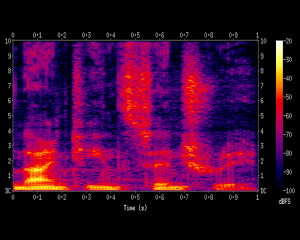Voiceprints Being Harvested by the Millions
By RAPHAEL SATTER Associated Press
Over the telephone, in jail and online, a new digital bounty is being harvested: the human voice.
Businesses and governments around the world increasingly are turning to voice biometrics, or voiceprints, to pay pensions, collect taxes, track criminals and replace passwords.
“We sometimes call it the invisible biometric,” said Mike Goldgof, an executive at Madrid-based AGNITiO, one of about 10 leading companies in the field.
 Those companies have helped enter more than 65 million voiceprints into corporate and government databases, according to Associated Press interviews with dozens of industry representatives and records requests in the United States, Europe and elsewhere.
Those companies have helped enter more than 65 million voiceprints into corporate and government databases, according to Associated Press interviews with dozens of industry representatives and records requests in the United States, Europe and elsewhere.
“There’s a misconception that the technology we have today is only in the domain of the intelligence services, or the domain of ‘Star Trek,'” said Paul Burmester, of London-based ValidSoft, a voice biometric vendor. “The technology is here today, well-proven and commonly available.”
And in high demand.
Dan Miller, an analyst with Opus Research in San Francisco, estimates that the industry’s revenue will roughly double from just under $400 million last year to between $730 million and $900 million next year.
Barclays PLC recently experimented with voiceprinting as an identification for its wealthiest clients. It was so successful that Barclays is rolling it out to the rest of its 12 million retail banking customers.
“The general feeling is that voice biometrics will be the de facto standard in the next two or three years,” said Iain Hanlon, a Barclays executive.
Vendors say the timbre of a person’s voice is unique in a way similar to the loops and whorls at the tips of someone’s fingers.
